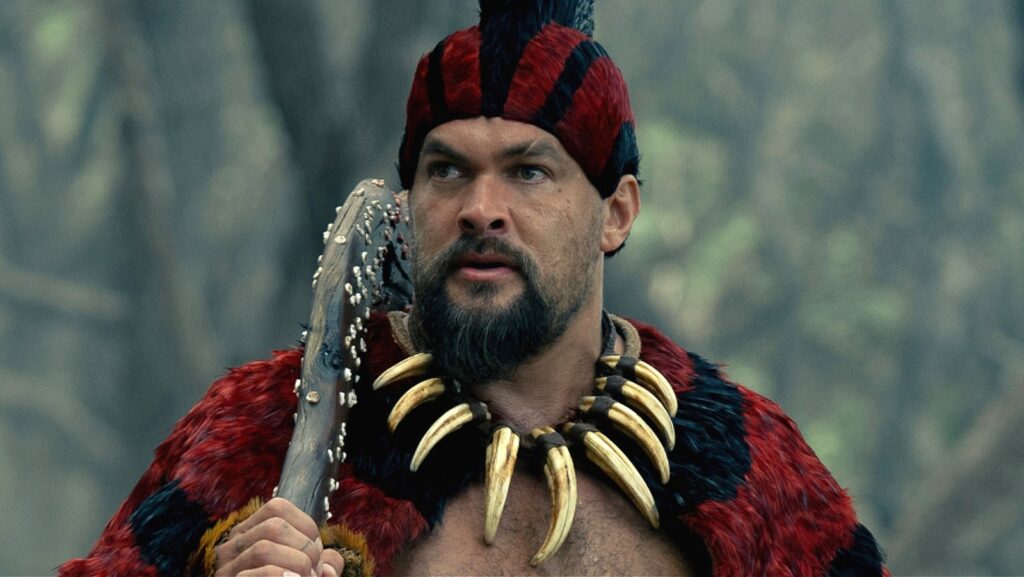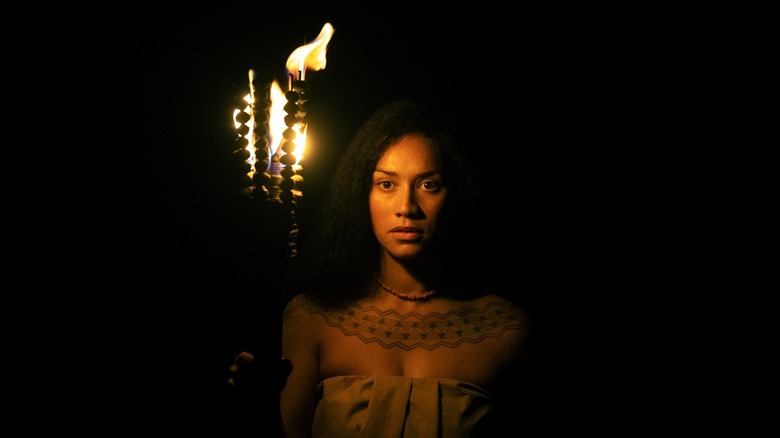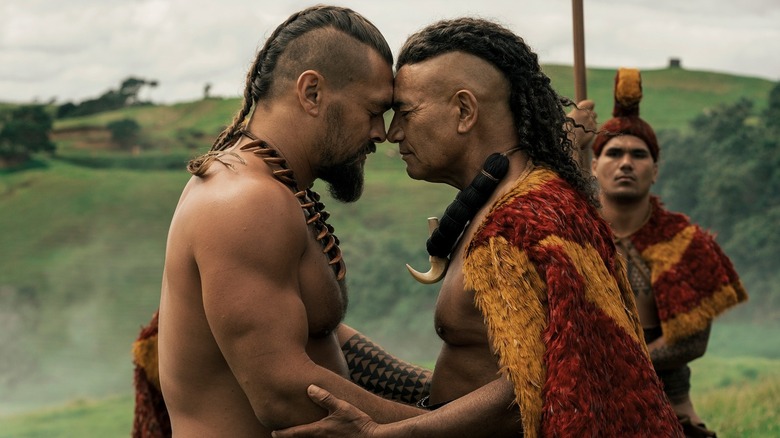RATING : 6 / 10
- Intriguing depiction of Hawaiian traditions and customs
- Solid performances
- Gorgeous scenery
- Lackluster direction
- Cliched drama
- Not enough action and suspense
As far as historical TV dramas go, we can confidently say that FX’s “Shōgun” set the bar extremely high last year. It showed that it’s possible to deliver a monumental epic on the small screen, too. But if you fell in love with that miniseries as much as I have, you realize it also created a drawback of high expectations for any other series trying to follow in its footsteps. Enter “Chief of War,” Apple TV+’s latest historical drama about Hawaii, a sumptuous and ambitious retelling of the astonishing island’s complex and extensive Polynesian history. Sure, it’s not necessary to compare the two, but it’s hard not to since creators Jason Momoa and Thomas Pa’a Sibbett clearly attempted to deliver something similarly painstaking and aspiring but fell short in the end. I wouldn’t call “Chief of War” a failure — but from a viewer standpoint, I have to say that its numerous flaws unfortunately outweigh its strengths by a wide margin.
Set in the late 18th century, the story begins with a voiceover telling us that Hawaii is ruled by four kingdoms (Maui, O’ahu, Kaua’i, and Hawai’i), whose kings don’t stand as one united nation. They rule differently, praise different gods, and lead different wars against each other as they see fit. The Ancient Prophecy is interpreted by each of them in various ways — sometimes arbitrarily in support of their own desires, sometimes serendipitously as a guiding light — but they all worship it as a divine power rising above their mortal existence. It’s a complicated hierarchy rooted in traditions and customs that takes some time (and openness) to appreciate and fully understand.
We first meet Ka’iana (Momoa) and his family — two brothers, his wife, and her sister — a group of outcasts who once belonged to Maui, but now are living as some kind of refugees on Kaua’i. However, Maui’s king/Ka’iana’s uncle, Kahekili (Kiwi acting legend Temuera Morrison), sends for him and his brothers since O’ahu pledged an unexpected war against them. Due to a recent vision, he believes that they can only win with Ka’iana on their side. He pleads with the Prophecy, but Ka’iana has no intention of returning or participating in another needless war. Still, Kahekili manages to convince him with some old-fashioned emotional manipulation that he doesn’t see coming at first, and when he finds out, it’s already too late. It’s all a scheme by the king who’s gone mad, and his aggressive yet calculated actions quickly escalate a grand war between the four kingdoms (and eventually the “paleskin,” aka the white man) that we get to witness up close as the plot thickens.
The show lacks a visionary approach
The beats in “Chief of War” are quite standard and get old quickly when we realize that redundant and repetitive dialogue is predominant over action and progress. Discussing war and prophecies seems endless in a crawling plot that rarely treats us with action scenes, and even most of those come off as inept and powerless. That’s not because they have no potential, but because their direction feels completely lackluster, lacking a unique vision from better-skilled directors. There’s a scene early on where Jason Momoa’s character captures a shark with his bare hands underwater, and it has the intensity of a sloth eating a banana. Don’t get me wrong, Momoa is made for this role as a half-Hawaiian, and every inch of his gigantic body rules the screen whenever he’s on it. He’s as dominant and charismatic as you’d expect (especially when speaking in his Indigenous tongue), but the ordinary and feeble direction lets him down more often than not.
The lack of action and a singular vision is the biggest issue of the series, because even some of the incoherent and disjointed plot points could be elevated by bloody battles, raw fights, or horrific sacrifices. Yet they’re so few and far between (until the finale) that their absence squashes even the good qualities the show has going for it. One of those is undoubtedly the authentic and thorough depiction of Polynesian heritage and lore, from the revealing loincloths to striking tattoos and animated war attires. This includes the native language that’s spoken in the majority of the nine episodes, and customs that are no short of intriguing.
“Chief of War” takes its Hawaiian roots very seriously, as it should, and presents them with utter respect. Naturally, honoring history is crucial here, and Momoa and company evidently went all out to get it right and as accurate as possible. However, I fear it may not be enough if viewers can’t get captivated by the story and its characters to stick with the show in the first place.
The potential of what Chief of War should and could’ve been
As much as I enjoyed learning about Hawaii’s past, the dragging, uneventful, and repetitive conflicts in “Chief of War” surely undercut the experience. That’s despite the generally stellar performances — particularly by Jason Momoa, Temuera Morrison, and Luciane Buchanan, who might be the revelation of the series (she’s fierce, dazzling, and fiery at 5’2″) — and a lived-in atmosphere (the island’s beauty is breathtaking) that sadly falters by an uninspired execution.
The truly baffling thing is that the finale, held by Momoa as a director for the first time, is everything the series should and could’ve been from its first episode. The final battle in the last 30 minutes is a relentless, thunderous, and uncompromisingly gory massacre with the intensity and undying spirit of a Hawaiian warrior. Momoa frames the combat and its spectacular fight choreography with skill and precision, delivering the kind of sizzling and satisfying violent clash that epic movies like “300” and “Gladiator” are praised for. Of course, this is television, so the scale is smaller and the CGI is less impressive, but the roaring effect of it all is easily up there. The only problem is that it’s too little too late.
“Chief of War” premieres on Apple TV+ on August 1.



